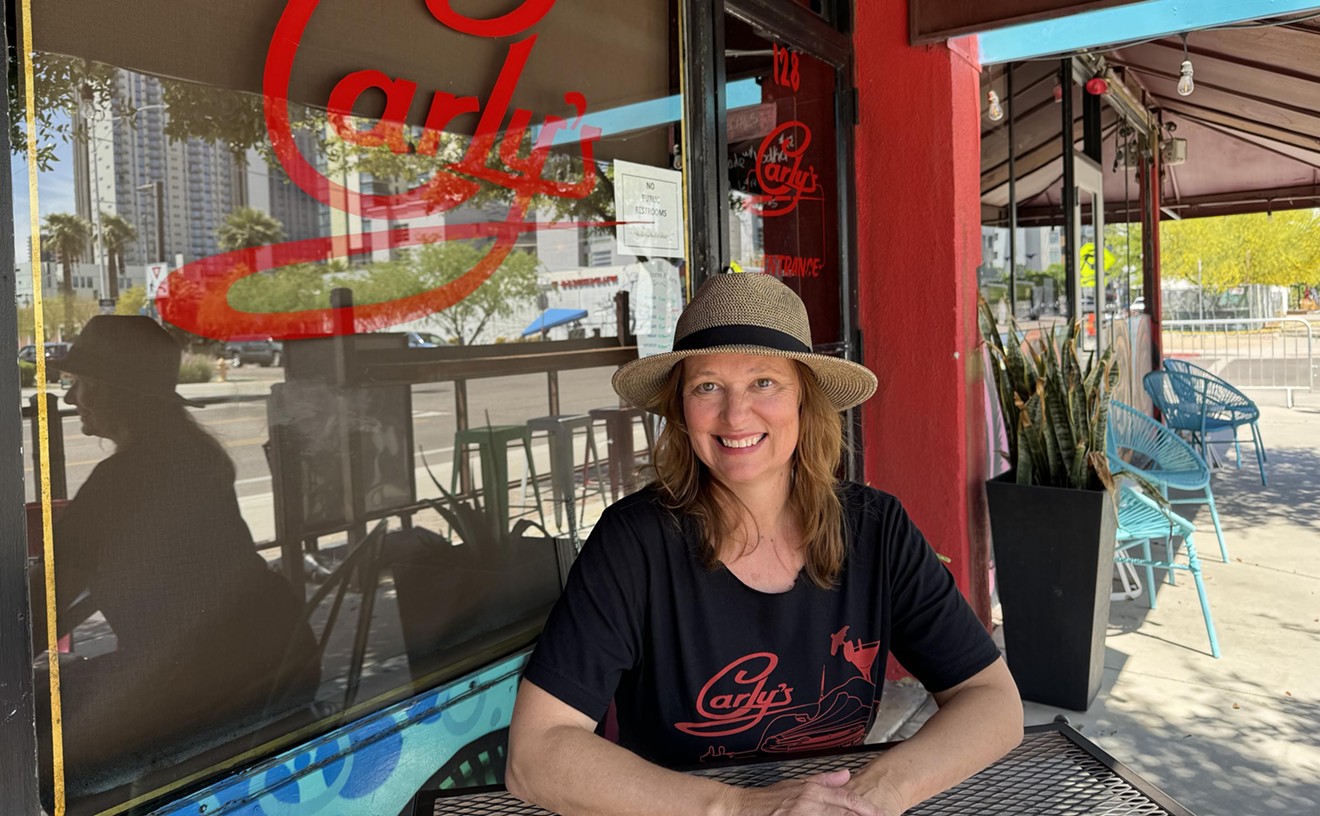The first words the Tamale Lady speaks to me are true. In a hurry to meet her and her granddaughter on this busy street corner in my long-ago neighborhood, I’ve dashed out in rubber-soled leather loafers — not the best choice for the long trek we’re about to make together.
“Lo siento,” I tell her, using half the Spanish words I know. I turn to Rosario, the Tamale Lady’s granddaughter. “Tell your grandma I promise not to complain about my feet.”
Rosario glances at my old-guy shoes. “You’re gonna get blisters,” she says before translating my promise.
The Tamale Lady’s name is Estela. She’s compact and sturdy; the top of her head, which is wrapped in a hot pink bandana, comes even with her granddaughter’s shoulder. She appears to be wearing three different skirts, all of them ankle-length. It’s a warm afternoon, but Estela declines my offer to carry the large, canvas sack filled with tamales.
“She don’t let no one touch her tamales,” sighs Rosario, who reminds me of every bored teen I’ve ever met. She’s been accompanying her grandmother on her tamale runs since she was 5 years old, she tells me. She says lots of people buy her grandma’s tamales, and at Christmastime “even the Mexicans who live down here” place big orders. Most of the time, though, people just buy one or two packages of three tamales. “I guess they eat them for dinner or something,” Rosario says.
Tamale Ladies are a thing — particularly, it seems, in historic downtown neighborhoods like mine, where they peddle homemade Mexican food door to door. Typically, Tamale Ladies don’t speak English and travel with a young relative who does.Tamale Ladies are a thing—particularly, it seems, in historic downtown neighborhoods like mine, where they peddle homemade Mexican food door to door. Typically Tamale Ladies don’t speak English and travel with a young relative who does.
tweet this
The Tamale Ladies have an understanding, Rosario explains, about who sells on which street. “It’s mysterious,” she tells me between texts with a girlfriend who doesn’t help her grandmother sell tamales and is anxious for Rosario to finish up so they can go to the movies. “They kind of just know, you know? This is my street, don’t sell your tamales here!”
Estela is not my Tamale Lady. The Tamale Lady who sells tamales in the snooty neighborhood where I live now wouldn’t let me follow her around while she works. She doesn’t want me to print her name.
“The people that live in these blocks,” she tells me when I ask, waving a large, rough hand to indicate the street where my own house sits, “they don’t like if I do this.” She hoists a plastic shopping bag filled with foil-wrapped tamales, three for $5. “They make trouble for my tamales, you make trouble for me with your paper.” I assume she means my newspaper essay about Tamale Ladies.
The Tamale Lady who sells in my neighborhood narrows her eyes at me, then rattles off an angry rat-a-tat of Spanish, some of which I understand to mean that I live next door to a witch who wants poor immigrant women to starve to death. She spits on the sidewalk then, and mutters a curse. I want to believe the curse is meant for the witch, whose name, I know, is Kathy.
I tell this story to Estela. I think it will make her feel bad for me, living in a neighborhood where the Tamale Lady is mean and spits on the ground. I want Estela to like me, and so far she doesn’t appear to.
Rosario translates my story for her grandmother, who shrugs. “La conozco.” Estela says. “Ella es mi prima.”
“My abuela knows your tamale lady,” Rosario translates. “She’s her cousin.”
I want to ask if all Tamale Ladies are related to one another, but I figure I better quit while I’m ahead. Conversing with Estela isn’t easy because Rosario has to translate each of my questions and then their answers. Also, we have to stop talking every three or four houses so that Estela can peddle her tamales.
At our first stop, I hang back while the two women bustle up the walkway of a brick bungalow. Estela knocks on the front door and, when it’s opened, Rosario offers a half-smile and says, in a bored monotone, “My grandmother is selling tamales. Three for $5.”
“Oh, yes, God, yes!” the woman who answered the door hollers. “The ones you sold me last month were so good. Why don’t you come around here more?”
Rosario shrugs in response. Estela beams; apparently, her customer’s joy doesn’t require translation.
When they join me on the sidewalk, I grill Estela. How long has her grandmother been selling tamales door to door? Is there some kind of Tamale Lady union? Has she thought about opening a restaurant? Selling on the internet?
Estela has been selling tamales for 23 years, Rosario says, ever since she moved to Phoenix from La Paz, a coastal town in Mexico where she lived with 13 brothers and sisters. She is 67 years old. Her husband died seven years ago; he was a janitor at a Phoenix high school. She worked in the kitchen of a restaurant when she first moved here. Her lack of English was a problem, so she quit and started peddling tamales door to door. Her grandmother doesn’t have a computer, Rosario says. She wouldn’t know how to sell tamales on one. Rosario pays Estela $10 per tamale trip.
When I lived in this more urban neighborhood in the 1980s, my Tamale Lady was Maria. She came around every Monday, and she also sold flautas. I tell this to Estela, who tells Rosario, “Maria is my first name.”
Rosario rolls her eyes. “Maria is all of our first names,” she mutters, more to herself than to either of us.
Estela seems amused by my question about a Tamale Lady union; I catch a fleeting half-smile as she tells Rosario to tell me that the Mexican women who sell door-to-door tamales are called tamaleros.
“My grandma sells about 200 tamales a week,” Rosario tells me between texts and tamale pitches. “She used to sell more but now I’m in high school and I have band practice and I can’t go out with her so much no more.”
Estela offers red and green corn tamales, and sometimes the sweet ones with raisins in them. Those don’t sell as well. She makes the tamales at home in her own kitchen, and buys all the supplies at a mercado in Glendale because they have the best paper wrappers. “For a while, she tried selling tacos, but they got greasy,” Rosario explains.
Rosario’s father, Estela’s son, is always trying to talk his mom out of peddling food door-to-door. “It’s dangerous,” Rosario says, “because she don’t got a food permit..."
tweet this
Rosario’s father, Estela’s son, is always trying to talk his mom out of peddling food door-to-door. “It’s dangerous,” Rosario says, “because she don’t got a food permit. She’s technically not supposed to be selling tamales without a permit, but permits are like expensive or something, I don’t know.”
(In fact, tamale ladies aren’t eligible for food peddling permits. Although in 2011 the state legislature changed the laws that govern individuals who prepare and sell home-cooked foods, those new laws pertain only to “non-potentially hazardous” foodstuff, and that doesn’t include anything involving meat or poultry. )
Estela interrupts to say that her kitchen is clean, and her customers know that her food won’t make them sick. She is speaking to Rosario, but she’s looking at me, her face scrunched up and her eyebrows raised. “Are you serious?” her eyebrows are asking. “Are you really asking me this?”
“It’s just corn and meat, and she always washes her hands before she starts cooking,” Rosario translates.
After that, Estela doesn’t seem to want to answer my questions. Her responses are short and she’s suddenly preoccupied with counting the number of tamales she has left. She argues in quiet, exasperated tones with Estela, who reports that her grandmother thinks she’s wasting her time with her cell phone and “staring at the internet” when she could be outside, breathing fresh air and playing in the sunshine.
“I’m too old to play,” Rosario snorts. “And I get plenty of sun and air following her around while she sells tamales.”
We are a tense trio. I’ve insulted Estela with my question about the safety of selling food door-to-door, and now she and Rosario are having a thing. After Estela sells three packages of tamales to a young man who pulls his car to the side of the road when he sees her, I tell her and Rosario that I have to get back to my writing.
Rosario glances up from a text conversation. “Okay, thanks, bye!” she sing-songs. Estela refuses to look up from the tamales she’s still counting.
As I turn to walk away, Estela calls out to me. “Roberto!” she barks, giving my name seven syllables and rolling both Rs with all her might. “No tomaste tus tamales!”
The Tamale Lady is smiling, holding out a foil-wrapped package of tamales to me.











